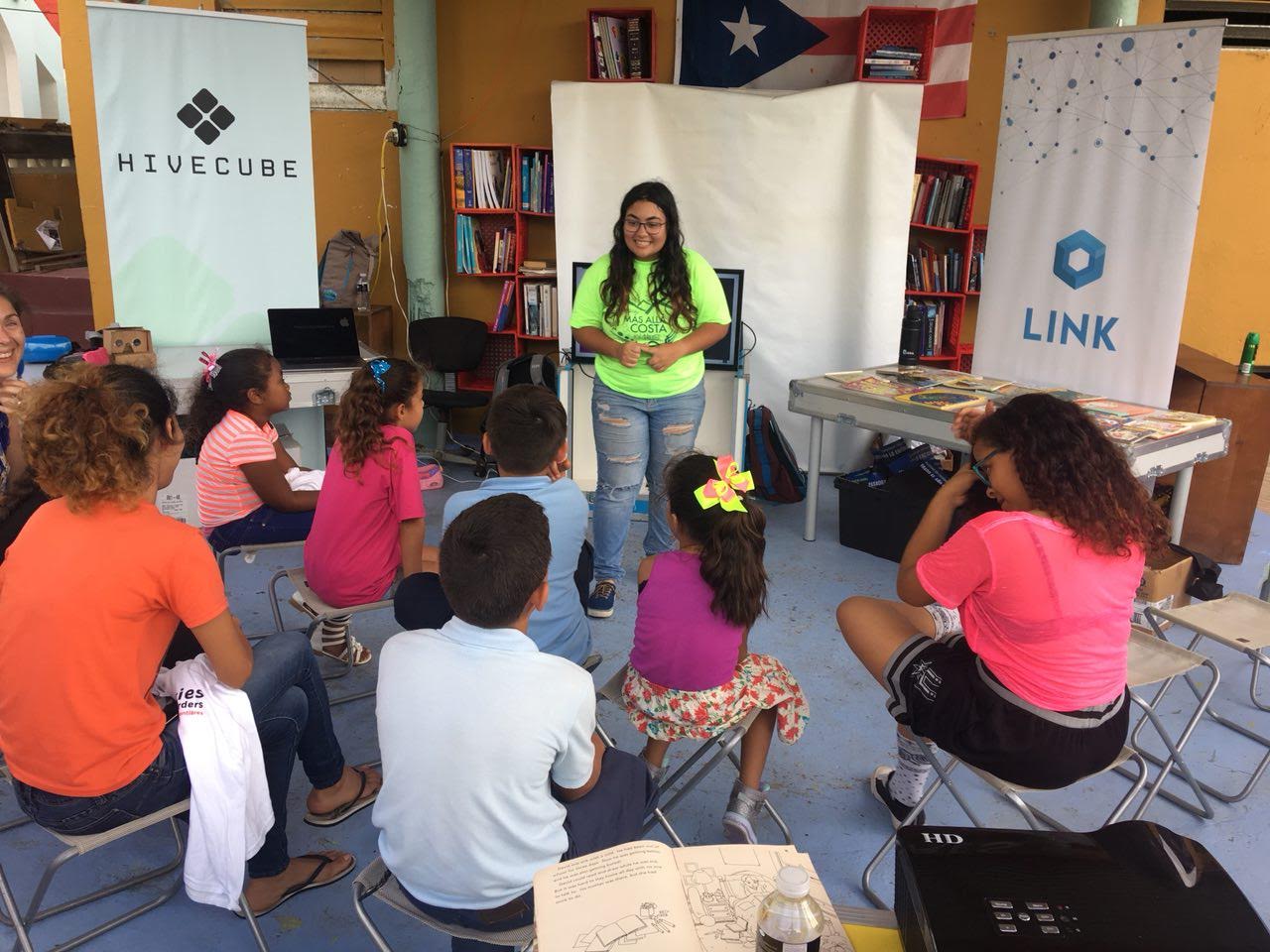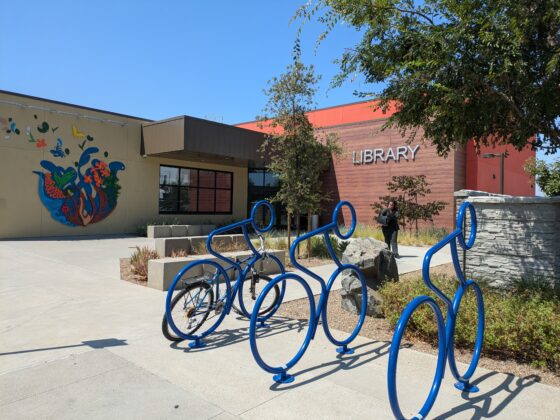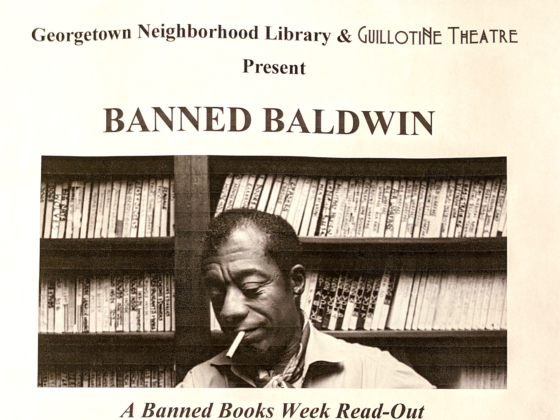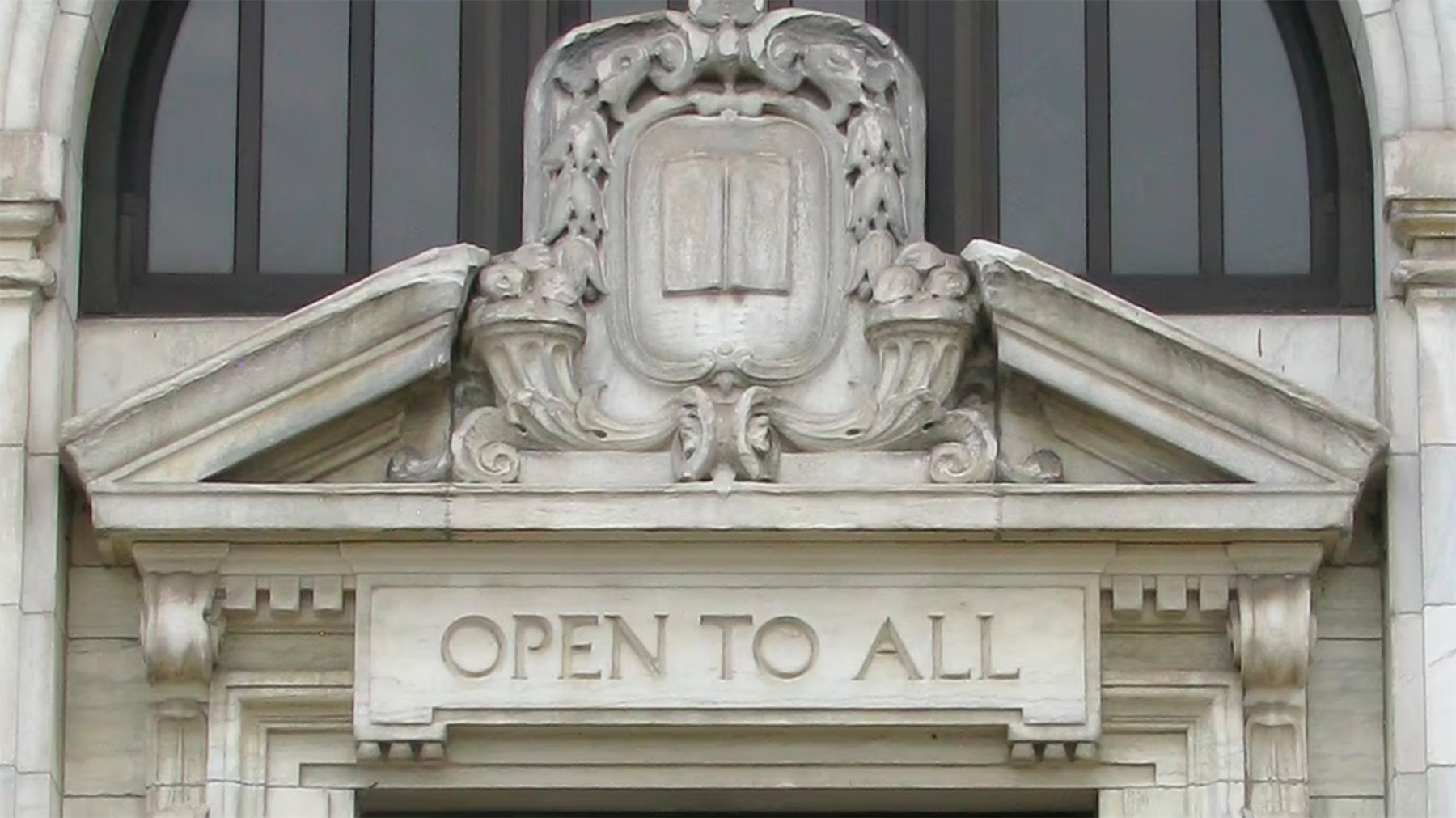Some people still think of libraries as tradition-bound places. But as we’ve reported from around the country, libraries have become some of America’s most flexible and creative institutions and have taken on urgent new responsibilities during the pandemic.
One widely noted change has been a focus on drawing more people, from more diverse communities, into existing libraries. “Library staff are moving out from behind reference desks and getting into the community,” Paul Negron, Director of Communications for the Urban Libraries Council, told me. Through these efforts, he said, libraries “can build trust with historically marginalized communities.” Our Towns reported on one example of this idea in Bend, Oregon, where staff in the Deschutes Public Library went out into neighborhoods and worked with over 60 organizations to foster relationships and create a sense of comfort and trust.
Another approach, which has gotten less attention, is to take the libraries out to the public, to places where people already gather and feel comfortable.
Bringing libraries out, rather than bringing people in, is the idea behind Bibliothèques Sans Frontières, or Libraries Without Borders, LWB, which is based in France but operates around the world. LWB is a nonprofit that launched in 2007 and has reached some 6 million people across 30-plus countries in 25 languages. They have been operating in the United States for the past decade. The purpose of this dispatch is to give some examples of what the LWB approach means.
There are many versions of what bringing libraries to the people means. Some projects deploy strategically placed pop-up libraries on city streets where pedestrians can randomly encounter them. Other projects respond in emergencies, including serving conflict areas and refugee camps with LWB’s inventive Ideas Box, which is a durable, energy-generating, internet-connected resource package that can be customized to meet local needs.
Aaron Greenberg, executive director of Libraries Without Borders U.S., explained to me that the motivation is simple: helping all communities access the benefits of a library. Sometimes that means offering something beyond a community’s public library.
“We find ways to bring the library directly to communities, who, for various reasons, wouldn’t normally ever use it, or know about it,” Greenberg told me. “We build trust and relationships between anchor institutions, like public libraries and community-based organizations and the communities who can be hardest to reach.”
LWB Programming – like digital literacy classes and entrepreneurship training that public libraries also offer – can help level disparities created by the digital divide by making these services accessible to more people. So can access to high-speed internet with mobile hotspots and electronic hardware, such as tablets or laptops.
The key for LWB is fitting the location and delivery of these services where they can best meet community members – in the places where they already gather.
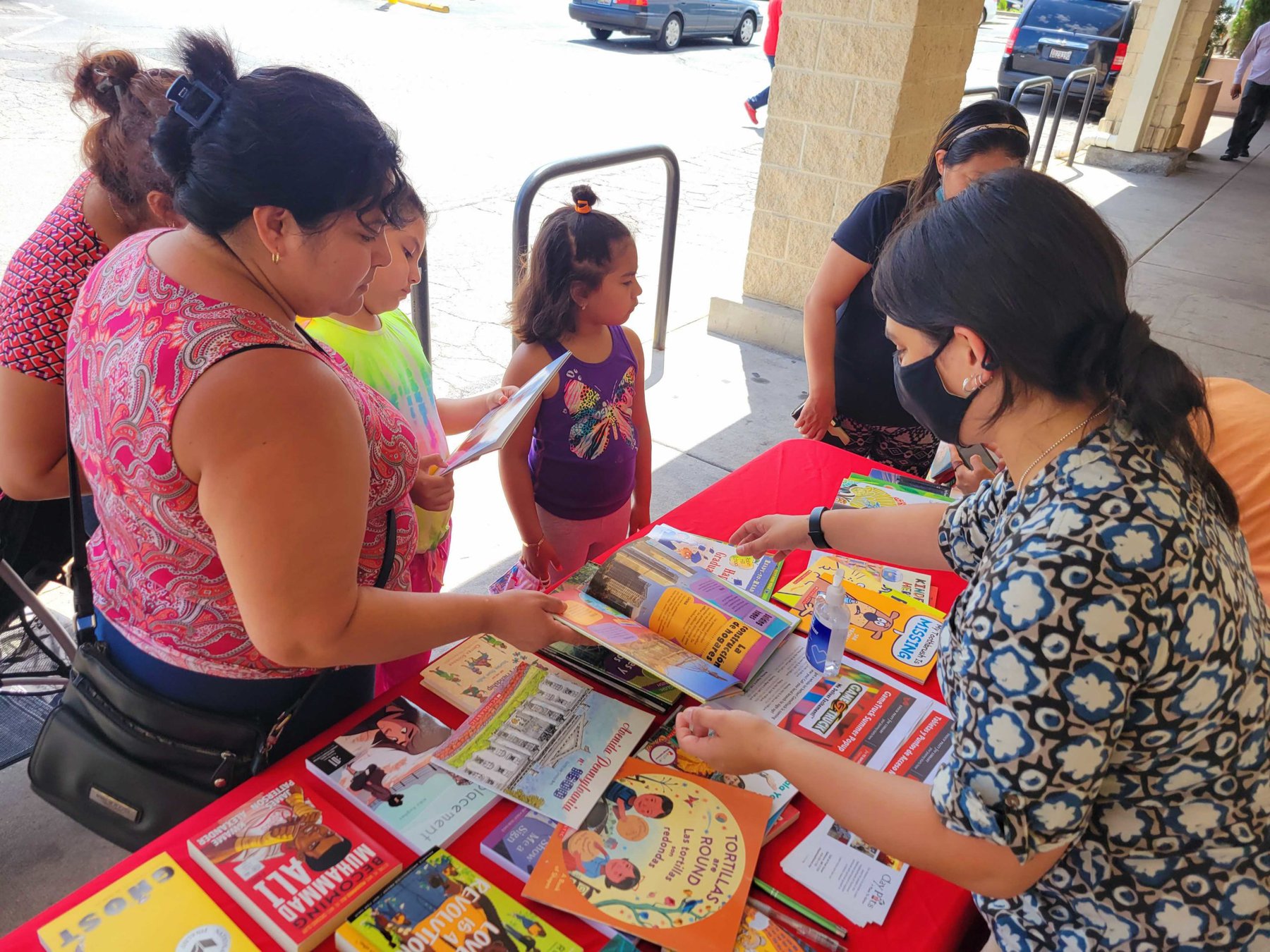

The Libraries Without Borders team explores taking libraries into spaces ranging from mobile home communities in Minnesota to supermarket parking lots in Baltimore. They have already had success building mobile libraries in over a dozen laundromats in eight states since 2014.
“Laundromats are places for working families to do chores, but they’re also real gathering spaces where people reliably congregate once a week, every week,” Greenberg told me. “We’ve turned them into book-rich multimedia libraries, facilitate high-speed, large-screen internet access, and provide families with early childhood literacy materials powered by digital tools.”
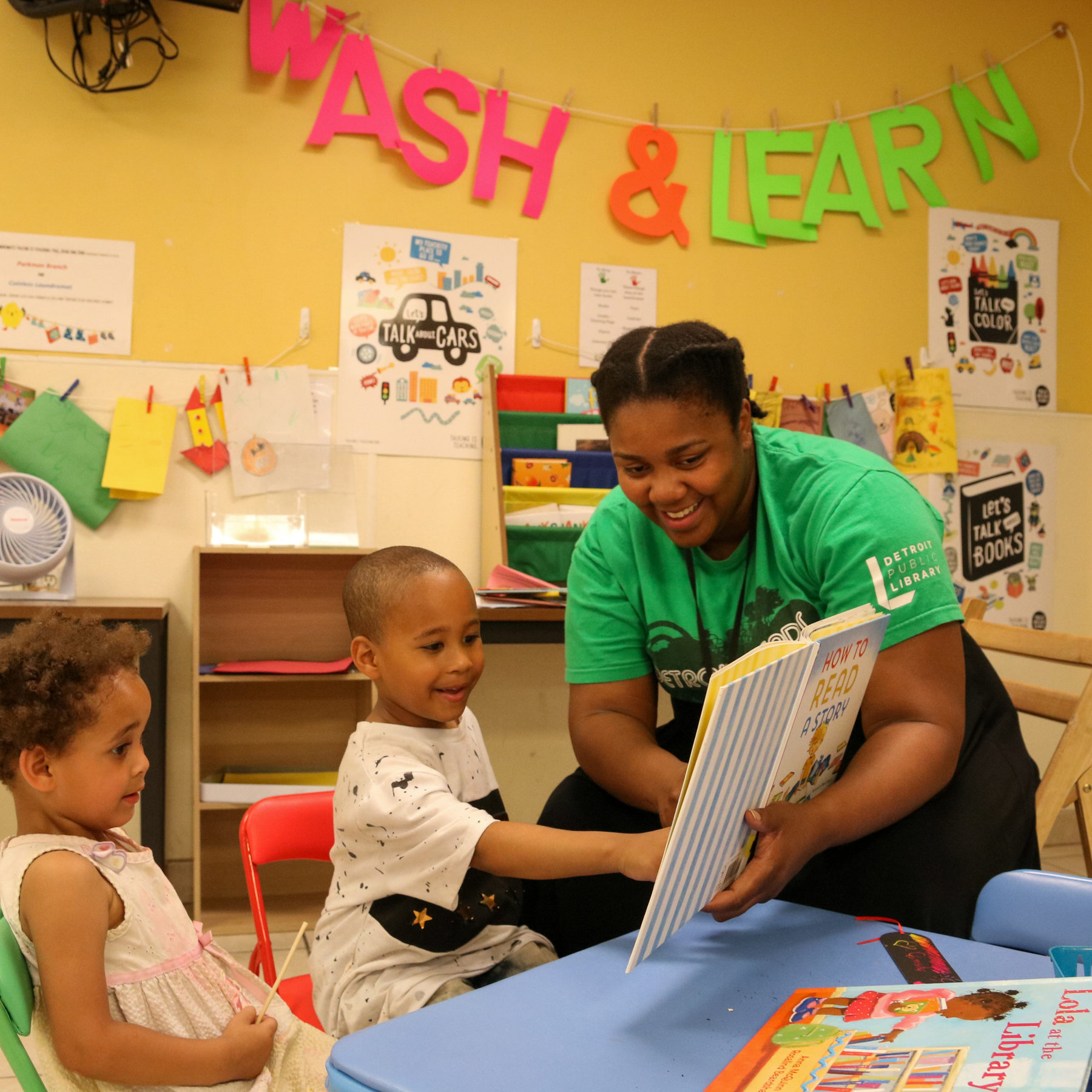
In other cases, LWB provides libraries in places communities might not otherwise think to find them. The team is now pivoting to a new model that builds more comprehensive locations – transforming vacant buildings into satellite locations.
One of Libraries Without Borders’ most innovative projects is in Puerto Rico, where there continues to be a call for greater investment in public libraries. Working to address the demand, LWB has converted three buildings – a decommissioned school, an abandoned municipal building, and a church – into multimedia community libraries. Alex Aldarondo, program manager of the Libraries Without Borders project in Puerto Rico, is intent on building the libraries of the 21st century in the Loiza region, located 20 miles east of San Juan.
“Libraries have to be more than books and laptops,” Aldarondo told me. “We can provide tools for local residents to incubate their own projects and business ideas. This could look like prototyping courses for entrepreneurship or offering them technologies like 3D printers. We hope to help people to start generating value from the resources that they have and the places that they live.”
The three libraries also serve as emergency response hubs in times of crisis, most recently Hurricane Fiona, which wrecked the island’s power grid. Aldarondo told me that two out of the three Libraries Without Borders locations are equipped with solar power. Community members were able to use those sites as recovery centers to charge devices and connect to the internet. The sites are also being used to distribute food and water to community members affected by the storm.

Whether in Puerto Rico or San Antonio, Libraries Without Borders made clear that their mission is not to replace the evolving roles traditional libraries play in communities. The organization seeks to enhance those services and that outreach.
“We hope to be the community organizing arm of the public library system – to support libraries in St. Louis or Wichita or Jacksonville or Spokane and help those libraries reach communities with aligned pop-up programming,” Greenberg told me.
Our Towns will follow the stories of Libraries Without Borders as they grow, learn, and innovate at the edges of their mission.

